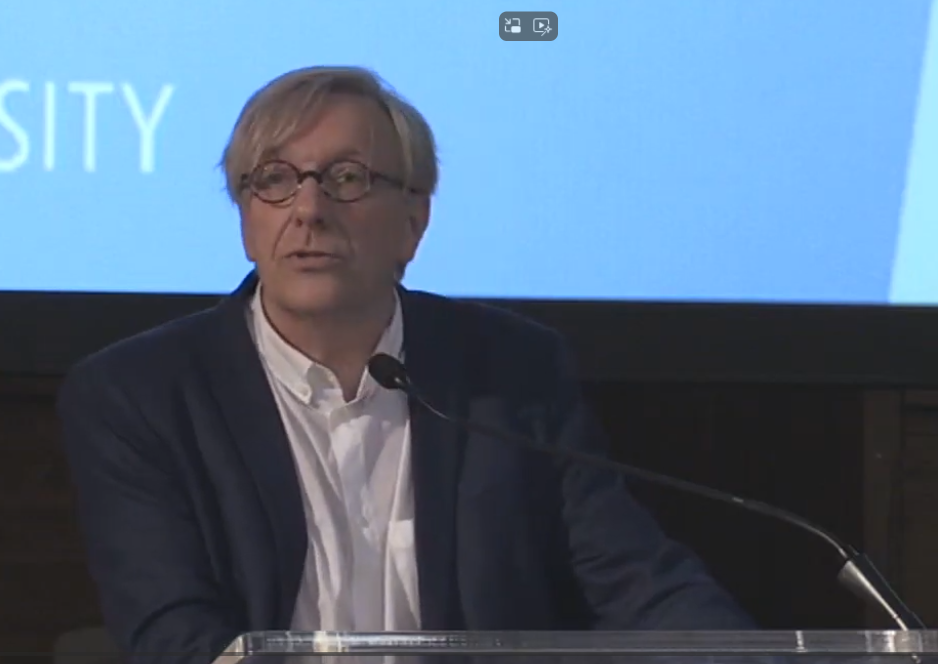EECERA Narratives #1 – Michel Vandenbroeck
Posted 15th October 2025
By Michel Vandenbroeck– Emeritus Professor, Ghent University, Belgium

Michel presenting at EECERA 2017 in Bologna.
In 1986, I started to work at the Centre for Innovation in Early Childhood (VBJK) in Belgium. The center emerged from a collaboration between the universities of Ghent, Brussels and Louvain and was situated in the Ghent University. Our main mission was to bring pedagogical reflection to the childcare field, while that field was mainly dominated by a hygienist and medical approach. This sanitary approach left little room for discussions about attachment, psychological care, development, children’s agency, parent participation and so on. Moreover, in the university where we were situated, child care was considered not a very serious, let alone an academic field. It was, therefore quite a lonely job, for our little team of four persons. Luckily, we were supported by the Bernard Van Leer Foundation, that had – from the start – stressed the importance of international connections. So, we had some contacts with grassroot organisations in the Netherlands or Scotland, with whom we could share insights about the difficult pathway of the professionalization of family day care for instance.
Despite these contacts, it felt as if we were working on the margins of academia, not being taken seriously, in contrast to the real scientist who worked with older children’s issues.
That was until September 7th, 1995. I entered the prestigious main hall of the Sorbonne in the center of Paris. Jerome Bruner was speaking. I received a booklet with the program. To my amazement, tens and tens of exciting workshops, scholars, PhD students presenting their work where scheduled. Hundreds of people gathering to discuss practice, policy and science on early childhood. Suddenly, I understood that what we were doing in Ghent, was part of a worldwide community of scholars and activists. When we were rowing upstream in our little Flanders, we were accompanied by hundreds of others.
Two years later, my colleague Jan Peeters and me went to the EECERA conference in Santiago de Compostella where we did our very first poster presentation. Another two years later, in London in 2000, I did my very first workshop presentation and discovered for the first time the work of some post-structuralist critical scholars that would influence the rest of my work later on. Later, I met up and exchanged ideas with colleagues in Cyprus, in Glasgow, Drumcondra or Stavanger. The exchanges with scholars from all over Europe encouraged me to pursue a more academic oriented pathway and after my PhD, I joined the academia. In turn, once I became a professor myself, I encouraged my PhD students to present their work and discuss with peers in EECERA conferences. EECERA gave me the opportunity to deliver twice a keynote address: in Geneva in 2011 and in Bologna in 2017. I have seldom been more nervous than these two times and I can still remember how I was rehearsing in front of the mirror during my holidays in the weeks before that Bologna conference.
I am now retired. Emeritus Professor as one says in the academia. Looking back at my career, I must say that EECERA has substantially contributed. Through scholarly exchanges, new insights both by established researchers and by young PhD students. But also through forming a community of practice in the original sense of the word, where research ís practice, where encouragement and open critical discussions make you think and reflect as well as belong.
Any views expressed in this post are those of the author(s) and do not necessarily reflect the official stance of their affiliated institution or EECERA.
Related links:
